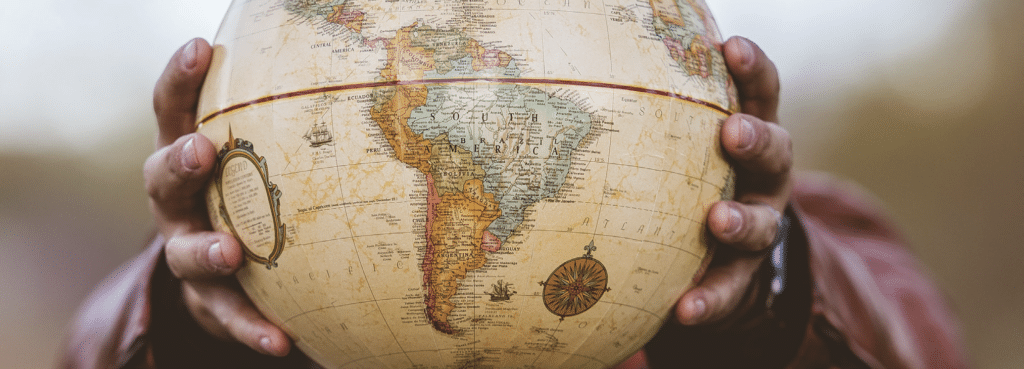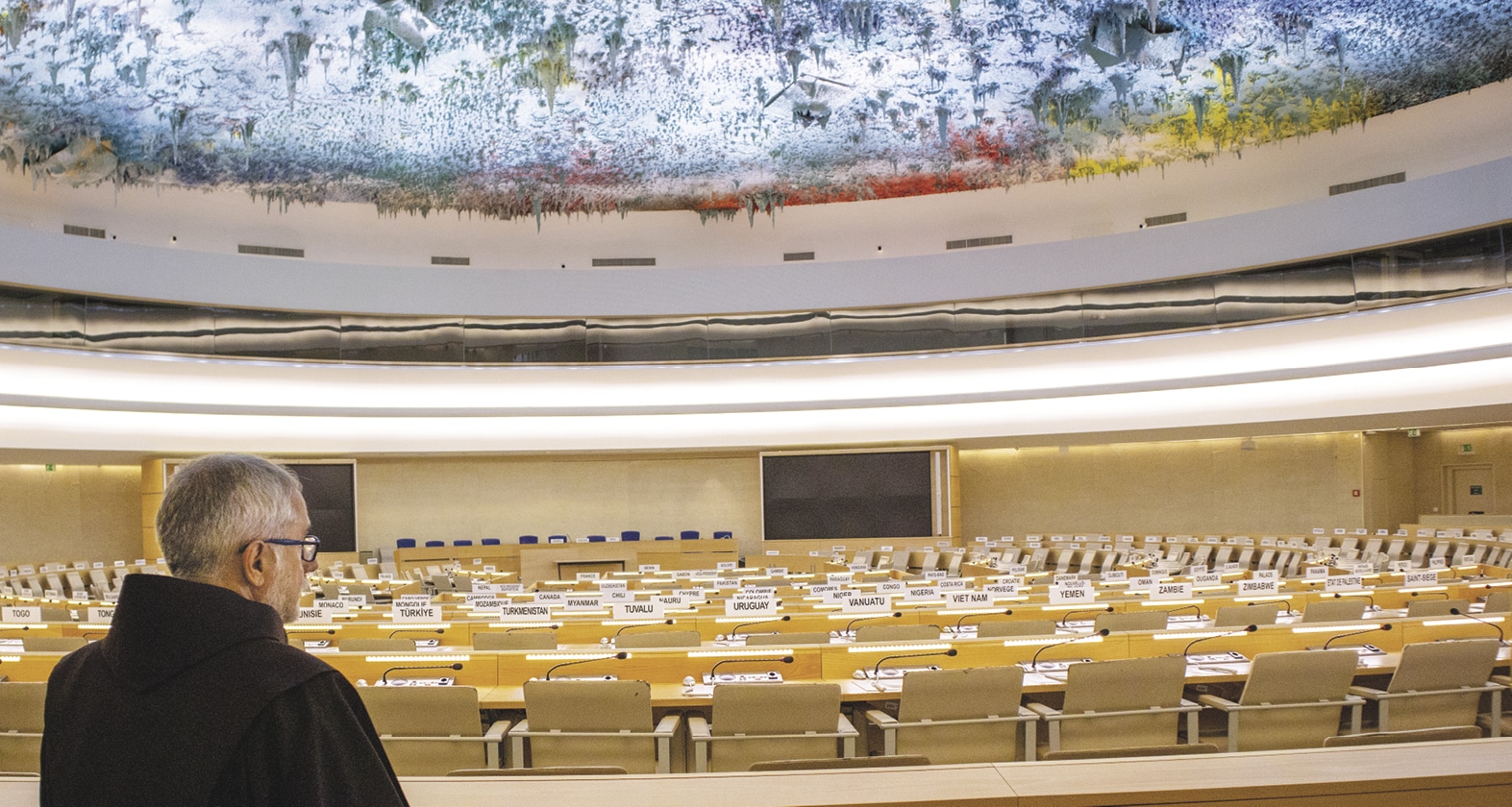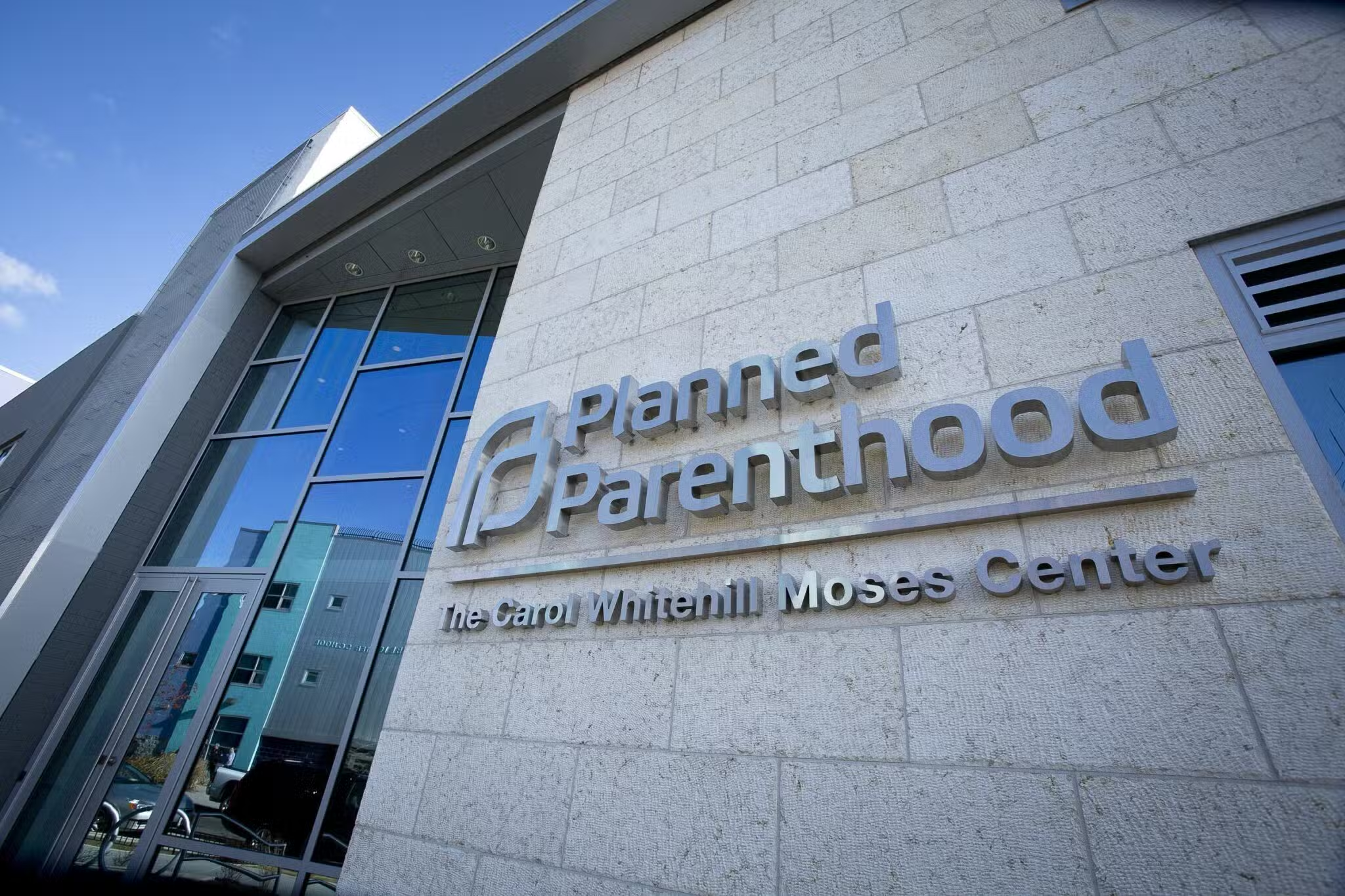For over three decades, Franciscans International has been giving the poor and oppressed a seat at the table at the United Nations.
Whether it be children attacked in Benin or villagers in Amazon hamlets swamped with pollution from rapacious mining, Franciscans International is championing its cause at the United Nations.
Organized in 1989 to lobby for social justice and peace in the tradition of St. Francis, Franciscans International remains part of the chorus of those seeking a just and more peaceful world. It brings the insights of the Italian saint from Assisi as well as the experience of Franciscans around the world to today’s global issues.
Its impact is felt beyond the headlines, as the organization quietly lobbies to improve conditions for the poor and oppressed throughout the world, wherever Franciscans minister.
Franciscans live and work close to the poor, often forced to confront issues that impact those they serve. In response, Franciscans International represents a wide berth of Franciscan communities, from Capuchins to Conventuals to Third Order members, as well as communities of Franciscan sisters, serving in the Americas, Europe, Oceania, Asia, and Africa.
Capuchin Franciscan Benedict Ayodi works for Franciscans International out of its Manhattan headquarters in a converted apartment filled with reminders—including a massive wall map of the Amazon region—of the group’s connection to the developing world.
Father Ayodi, a Kenyan, is the organization’s outreach officer. He says the Franciscans bring an unparalleled vision of the world to the United Nations. “Franciscans are a large family who work with so many poor people and people in need throughout the world,” he says.
Father Joseph Rozansky, OFM, board president, has been part of Franciscans International since its inception and has long been involved in justice ministries in Rome. The friar formerly served as a missionary in Brazil.
He is a promoter of using UN structures to address world problems. “It seemed to me a no-brainer that Franciscans should be involved at the United Nations, where many of our values are promoted on the world stage,” he says.
Inspired by St. Francis
Franciscans International works beyond regional concerns to address universal issues, congruent with the vision of St. Francis.
The man from Assisi has been celebrated for centuries for his concern for the poor, peaceful dialogue with Muslims and others, and his love of creation. All of it inspires Franciscans International, says Father Rozansky.
“Our founder was very concerned with peace, with the impoverished, and with the planet,” Father Rozansky says. “We, the followers of Francis, are called to continue promoting these values in the world and, more specifically, at the United Nations.”
Today’s issues are very different, but the ideals of Francis continue to permeate the group’s lobbying efforts.
It’s been 800 years since Francis of Assisi walked through Europe and the Middle East. In his day, he was never forced to confront the massive industrial environmental degradation common in today’s world. Even so, St. Francis made a point of his friendships with God’s creatures, including birds and a much-feared wolf. Now Franciscans International is channeling that concern for creation into modern environmental activism to save the world from human-caused degradation.
Father Markus Heinze has been involved in international peace and justice work with the Church since the 1980s and has long served in leadership for Franciscans International. He is currently the executive director in the organization’s Geneva offices—where the United Nations has a strong presence—but will be passing the torch of leadership to Blair Matheson, TSSF, in January. The Franciscan brand speaks credibly to a world seeking justice, says Father Heinze.
“From my experience, I can say that people trust Franciscans, in particular when it comes to issues related to care of creation and people living in extreme poverty,” he says. “Franciscans are close to the ordinary people and understand their problems.”
Pope Francis has called upon Catholics to bring the Gospel to the world and to focus more outwardly on global issues rather than on internal Church concerns. Father Heinze notes how the pope regularly describes the mission of the Church as not looking inward but of identifying with those who suffer. The United Nations and Franciscans International are a perfect match in that regard.
Why the United Nations?
It’s not to say that the United Nations doesn’t have its detractors.
The United Nations has been denounced for not doing enough to prevent wars and address poverty. Some critics suggest the organization is a tool for the richest and most powerful countries to exert their might. Others criticize it for passing high-minded resolutions with little follow-up and carrying on debates in the cloistered campus on New York’s East Side while conflicts rage around the world. Authoritarian governments frequently support resolutions that endorse human rights initiatives in other nations while political opponents are oppressed in their home countries.
New Yorkers in particular seethe each year when the UN General Assembly meets in the fall, clogging already overcrowded city streets with limousines and SUVs. The presence of diplomats and world leaders enjoying the city’s highest-priced restaurants is reported each year. Member nation fees, including those from the United States, are often seen as a waste of money.
But Father Heinze continues to see the United Nations as invaluable in bringing world leaders together, even if they don’t always move quickly on addressing injustices. No other organization has such a universal reach.
“The United Nations is, of course, to be questioned in many ways, but it is the only place where all the world comes together to look at and deal with the challenges humanity faces,” he says. The ideals of the organization, articulated in the Universal Declaration of Human Rights, dovetail with Christian and Franciscan values, says Father Heinze.
Franciscans International brings human rights and other issues to the wider attention of the world through the work of the United Nations. And, as it did with the cause of the children in Benin, Franciscans International can place a global spotlight on local issues.
“I would say that we can have the most impact by focusing on countries and issues that are not on the priority list of the international community and where Franciscans on the ground are directly involved,” Father Heinze says. “Just to follow the mainstream and concentrate on issues like the wars in Syria or Ukraine, or the issues around COVID-19, will just add one more voice to the many.”
Some of the work that Franciscans International does cannot be publicized due to its sensitive nature. Behind the scenes, the group is working with Franciscans in some African countries to highlight injustices that, if publicly advocated, could put activists at risk.
Father Michael Perry, OFM, served with Franciscans International and worked for the US Conference of Catholic Bishops on human rights issues. Father Perry, an Indiana native and former general minister for the worldwide Orders of Friars Minor, previously served as a missionary in the Democratic Republic of the Congo. He retains an interest in African issues and is a member of the board of Franciscans International.
Franciscan Witness
He believes that the Franciscan charism has much to say on world issues.
“We bring credibility, because, despite our weaknesses and challenges, we Franciscans place the human person, the dignity of all, including the created universe, at the center of our vocation and missionary work wherever we might find ourselves,” Father Perry says.
Franciscans International relies strongly on the witness of Franciscans who are willing to take on, sometimes at great risk, issues pertaining to exploitation of the poor and the ravaging of the environment, he says. Local governments and large corporations often prefer to let the issues remain dormant. Speaking up can pose dangers.
“I remain amazed by the courage of our brothers of the order, and of the entire Franciscan family, to not run away from difficulties, even in cases where they face personal threat to their own lives, choosing communion and solidarity over fear and care only for self,” says Father Perry.
Bringing these concerns for social justice and the environment to the United Nations makes sense, despite the organization’s well-known shortcomings, say Franciscans International leaders.
“There is no other venue, no other system or structure that brings together virtually all of the nations of the world to pursue dialogue, collaboration, and to seek sustainable solutions to endemic poverty, global health challenges, conflicts and wars, and to alter the human impact on destruction of the environment and negative contribution to climate change and global warming,” says Father Perry.
Franciscans International sees a need for reforms to the structure of the United Nations itself. Among those issues, says Father Perry, is changing the veto power that the five permanent members of the Security Council (the United States, Russia, China, France, and the United Kingdom) hold over effective international action. That structure was developed at the beginning of the organization, based upon the will of the dominant powers in the immediate post-World War II world. The world has changed drastically since, and smaller, less prosperous nations need a stronger voice at the United Nations, say Franciscans International leaders.
But they see progress even within the shortcomings of the current structure.
Father Ayodi says there is value in getting governments to agree to make changes, even if at times they will fall short of UN goals. Articulating ideals can have a practical purpose. Getting governments on the record allows activists to point out where improvements need to be made. One example was when governments signed on to 17 goals of sustainable development, with improvements in sanitation, education, and income equity, among other concerns, to be implemented by 2030.
“It helps for countries to be focused and also to be held accountable,” says Father Ayodi.
Meanwhile, Franciscans around the world continue their ministries. They will be listening to their people whenever injustice abounds. Franciscans International will continue to have listening posts in regions of the world that rarely make headlines in the Western media but where Catholics working for justice and environmental protection remain active.
“At least there is a voice,” says Father Ayodi.
That voice exists in the halls and offices of the United Nations as well as in tiny hamlets in impoverished places in the world in Latin America, Africa, and elsewhere—wherever Franciscans are engaged in spreading the Gospel.
The people who live in those remote places where Franciscans minister are often not heard, yet are still able to retain their voice in the corridors of power at the United Nations, thanks to the lobbying efforts of Franciscans International.
“Where no one wants to go, you will find a Franciscan,” says Father Ayodi.

Sidebar: A Voice for People Around the World
Whether advocating for young people in the slums of Kenya, communities facing a blighted water supply in Brazil, or the poor in Quebec, Franciscans International stands with those they serve. The following are examples of the organization’s global reach.
Africa
Capuchin Franciscan Benedict Ayodi first discovered the work of Franciscans International back home in Kenya in 2008, when hundreds were killed as the result of political turmoil after a disputed election. Father Ayodi wanted to minister in a neighborhood deeply affected by the killings. The police told him not to go, saying it was too dangerous, but he insisted.
There, Father Ayodi found a church where “the people were waiting for Mass. The only hope for them was to pray for peace.”
Their deep faith that God could help inspired him. Father Ayodi offered Mass, augmenting prayers for peace with action.
At a UN conference in Geneva, Switzerland, Father Ayodi urged the international community to do something about the crisis in his country. The late Kofi Annan, former UN secretary-general, was enlisted to mediate the conflict, and the effort paid off with peaceful negotiations. Post-election peace prevailed.
In the West African nation of Benin, Franciscans International pushed for world attention on an Indigenous practice in which children—often those with disabilities or with physical attributes different from the majority population—would be labeled as witches and then bullied or, in some cases, killed. Albino children were particularly targeted, as were children with autism. UN action pressured the Benin government to outlaw the persecution.
Franciscans International also assisted young people in the Mukuru slum of Nairobi, Kenya, training them to implement water sanitation policies, an issue of grave concern throughout the developing world.
Environment and the Amazon
Inspired by St. Francis and Pope Francis, Franciscans International has lobbied to make an impact on the world’s environmental crisis. Franciscans International has focused on stopping multinational mining companies from pillaging the environment in countries such as Brazil.
Much of the information they use in arguing their claims comes from Franciscans on the ground, in particular the extensive Franciscan presence in the Amazon. Taking a cue from Pope Francis’ “Laudato Si’” encyclical, Franciscans International has joined the international clamor for action on climate change that culminated in the Paris Accords.
Father Joseph Rozansky, OFM, board president for Franciscans International, notes that Franciscans see up close the fallout from massive mining in places such as the Democratic Republic of the Congo, Indonesia, the Philippines, South Africa, and Brazil. When mining operations degrade the local water supply or fail to treat workers justly, Franciscans ministering in those countries experience it firsthand and look for Franciscans International to galvanize world concern.
Europe, North America, and Latin America
Franciscans International has joined with others to promote a proposed law to eliminate poverty in the Canadian province of Quebec; worked with homeless families seeking land ownership in Uberlândia, Brazil; supported efforts by the local government in Strasbourg, France, to improve conditions for the Roma population there; and encouraged birth registration in the Amazon region of Bolivia, helping the government better plan the use of scarce resources.








